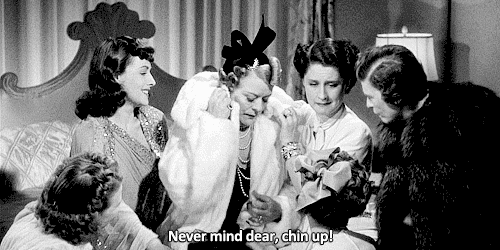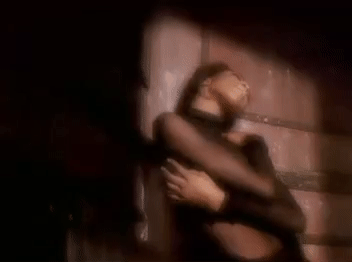The other day I caught up with an old friend who told me he was getting divorced. “I’m sorry,” I said, but caught myself. “Or…congratulations?” I babbled about how I never know what to say to someone when their marriage is ending. Sometimes it’s the right thing. Other times it’s tragic. Often it’s both.
I put this issue together because either because of the pandemic or this stage of life, more of my friends seem to be at a crossroads or crisis point in their marriage (extremely understandable, tbh.) Sometimes when a friend’s relationship is in peril or ending, you don’t know whether to pile on the offending partner, be Switzerland, check in a lot, give them space, inadvertently encourage a split where there will be none or cheer a reconciliation when that’s not the solution either, congratulations vs condolences.
If you also have mom friends who are going through a make-or-break moment with their partner or are going through a full actual divorce, here is some input from witches whose marriages ended after they had kids—and what from their friends did and didn’t help during the worst of it. I hope to use this so the next time I talk to someone in this situation there will be less babbling (on my end) and more being there.
*
“When my husband walked out the day that lockdown started in 2020, I was completely shocked and unprepared. I immediately started tapping the smartest and most connected people I knew for ideas and resources just in case I couldn't get my husband to come home. (He didn't, and it was the best thing ever for me.)
When it came to legal advice, I reached out to anyone who had been through a divorce recently or had a wide professional network that included attorneys. Within the first hour, I’d already had one phone consultation. At the end of the first week, I’d had a dozen. I received a recommendation for a local not-for-profit that helps women experiencing divorce, The Lilac Tree, which offers support groups and professional referrals. I attended their virtual support groups for months.
I had two female acquaintances whom I knew had tough co-parenting relationships and asked them for advice since my former spouse made it clear that our split was not to be amicable. The best tip was: "The way [your co-parenting relationship] starts is the way it will continue." I thought this was pessimistic at the time; it turned out to be an understatement. Other tips included the need to document everything via email, text or another contemporaneous record. Another friend pointed me to a list of stock responses to give a narcissist so as to gracefully shut down arguments, via One Mom's Battle.
My first attorney offered several smart pieces of advice that led me to hire her. I had no credit cards in my own name. She told me to apply for several as soon as I hung up the phone, to name someone else as my power of attorney, and to focus only on what I could personally control.
I needed to rebuild a professional life for myself immediately, almost from scratch, and during a pandemic. I reached out to old contacts and online acquaintances to mend fences and get advice. My former boss recommended learning some new software that directly led to getting a part-time job a few months later.
Other former co-workers ended up hiring me for freelance and project work, which was vital for my finances but also bolstered my emotional well-being at a critical time. Many others provided help on how to secure more freelance work, manage billing, etc. I've since secured a full-time job and have more financial security.
I asked any divorced person I knew for advice. One of these people is a Facebook friend that had dated my former spouse before me. She was awesome and pulled a group of other divorced parents together for me to chat with. One of these women immediately told me to start buying gift cards when doing the shopping (I still had access to our checking account, and would for months) just in case he cut me off. That's how I paid for groceries this summer after he eventually did cut us off entirely.
Another unlikely source of help was from my ex-husband's first ex-wife, who he described as ‘crazy.’ She was gracious with her time when I asked for what I should expect from him during my divorce. Her experience also turned out to be a blueprint for mine: leaving out of the blue, his family cutting off all contact immediately, intense gaslighting, no explanations or apologies.
Many divorced people told me that I'd know when I was ready to date again, and that yes, I could trust again, and that someday, this wouldn't all be so hard. I did end up dating again, and have been with my new partner for nearly a year and a half. He's lovely.
One of my best male friends constantly burst bubbles I had about reconciliation, which was exactly what I needed. I found a lot of glaring signs, including phone records, driving logs, credit card records, and narrative inconsistencies. My friend helped me clearly and kindly understand that what I was seeing was what I was actually seeing, despite what my former spouse was telling me. Id’ started dressing nicer and mused if that would help, and my friend said, ‘He doesn't even see you anymore.’ It was the most freeing thing I'd been told in some time.
Due to the trauma and stress, I ended up losing a lot of weight quite rapidly. I had friends check on me around the clock as I wasn't sleeping much. I was told to feed myself, try to sleep, move every day, and understand that it would get better, eventually and surprisingly. I needed to hear all of these things, over and over, for months. Until, eventually, I didn't.
Ultimately, what helped the most was that I realized that I needed help, asked for it, and followed advice. This wasn’t something I had been good at. I was just vulnerable enough to get past my ego and understand that I didn’t know what to do, but that other people did. I'm thankful to everyone who helped, and want to return it however I can.”
*
“Right in the thick of it, I had a friend tell me, ‘Okay, all you have to do is get through the next 15 minutes. That's it. You can do that. Text me in 15 minutes. And then look at what you need to do in the next 15 minutes.’ It helped me to divide all the madness of my life right then into baby steps, and having her support was so great. It also really helped to talk to women who had been through it (I mean, duh) — like a divorced friend told me ‘You're in the worst part right now, the actual splitting apart, it's so painful, but it gets easier.’ I needed to hear that. And it was so true! I also think it always helps, when things are terrible, to remember that as adults, we've gotten through a lot of hard things before, and we know how to get through hard things.
I was the one ending my marriage, so I was happy to hear anything that was like ‘You're making the right decision’ or ‘This part is hard but I'm so happy for you, because things will be so much better later on.’ I think the best thing a friend can do is just listen. And to hold optimism for a friend who can't yet. Like, it’s so powerful to say: ‘It's okay if you can’t conceive of how things will ever be ok. I know they will be ok eventually and that you will be in a better place, and I can hold that for you.’
Also I think whiskey helps.”
*
“Married people saying they’re single parenting when their partner is out of town used to make me SO MAD, like, it’s not even close to the same thing. Also, I think people forget when you tell them what you're going through that they don't have to fix it or tell you how to fix it or pump you up. Sometimes you need to be supported by someone saying ‘This is absolutely terrible and you don't deserve it.’”
*
“You just don’t know what it’s like to have to have your kids taken from you and go with that other parent until it happens and it’s the worst thing you’ll feel in your entire life. To be able to connect with other people who will tell you you’re not going to die from this divorce was one of the major things from me.
I had friends who forced me into self care—who still do that. My friend says ‘I’m coming to pick you up and I’m taking you for a massage.’ To get out of the house and the situation and take a breath from the kids and be able to do something you don’t want to do because you feel guilty or are too sad—I really valued that.
Obviously, DoorDash, pizza delivery—people doing it unsolicited. ‘I’m just going to send you 2 frozen pizzas from Chicago and I know if you might not eat them tonight, but in two nights, when you’re too tired, you’re going to use it.’
A lot of it for me is when people help me unsolicited. When you’re getting divorced, it feels very lonely and there’s a little bit of shame. You took your vows and put your shit on Instagram and Facebook and it all falls apart. It’s really nice to have friends who are like ‘Dude, I’m going to help you.’”
*
“I had the unique experience of coming out, separating from my husband, and then losing both of my parents within 5 weeks of each other. So many people showed up for me. Meal trains, grocery drop offs, gift cards, random texts and letters and offers to help. I know a lot of this was because of losing my parents, but just seeing people support me and show up for me made me realize I was making the right choice again and again. I never felt judged or like I was making a mistake. And just normalizing divorce. It is a happy thing. No one said, ‘Oh I’m so sorry. It was all, ‘FUCK YES, GOOD FOR YOU, YOU’RE AMAZING.’ And I think even prompted some of my friends to analyze their own relationships and make the same decision.”
*
“Having friends to support me and reflect truth back to me (I was not crazy; it was bad; I would be okay; my kids would be okay) was essential. I think a few things people told me changed my life:
1. When my friend Mary was casually was like ‘Oh he must be controlling about money’ and I was like ‘How did you know?’ And she was like ‘It’s a classic abuser thing.’ And that BLEW MY MIND. I'd never thought about my relationship that way.
2. A friend told me once that her parents divorced when she was five and she wasn't traumatized by it and her life was fine. Made me sob in a Target.
3. My best friend Anna talking to me on the phone and being like, ‘Hey you are miserable and you either need to leave or find another way because you've been talking about this for over a year.’ And I guess I hadn't realized how long I'd been miserable for.
I think honesty spoken with kindness is crucial.
Friends who will help you move, give you their old pots and pans, friends who will help you learn how to hang curtain rods, or drink with you on your porch when you are lonely and feel like you'll never go on another date again. Having a friend who’s available for random dinner nights. Or the friend who will just meet me for a drink at 9pm or bring me soup when I’m sick. It’s different being the ONE single mom friend without family in town. God, I remember my friend Jessie came and helped me assemble furniture until midnight once.”
*
“Mainly just listening without judgment - including judging the offending partner. Often this just makes people defensive and weirdly harder for them to leave even when they should - even agreeing with them when they say ‘My partner is an asshole’ can trigger the ‘No they’re not’ response. I read a book about this years ago called To Be an Anchor in the Storm which was really eye-opening. It’s specifically about abusive relationships, but lots of ‘wow I never thought of it that way’ insights. Focus on empathetic statements like ‘That sounds tough and ‘What's important is your happiness’ rather than telling them what to do.
Offer to babysit. If they’re not too far gone, date nights can help - take their kids for a sleepover so they can have a quiet night at home if that’s easier in COVID. Or babysit just to give your friend some alone time if their partner doesn't facilitate/allow that. DO NOT say ‘You need to make time for yourself!’ unless it comes with a direct offer to facilitate that. Seriously I had a much wealthier friend say ‘All our fights were about household chores, so we hired a housekeeper. Have you tried that?’ Not helpful if your ‘solution’ is 100% out of reach!
Just remove ‘you need to’ and ‘you should’ from your vocabulary. Reframe it as ‘would time for yourself help?’ ‘Have you thought about doing xyz? If yes, what's stopping you, and how can I help?’
Don't offer legal advice unless you practice family law in the jurisdiction relevant to them.
Don’t ‘empathize’ by comparing your own mild marital squabbles to their life-changing crisis.
If they’re at the point where the marriage really needs to end but worried about ‘staying together for the kids’ - remind them that kids need parents who are happy and healthy, not necessarily living under the same roof. Are they okay with their kids seeing their marriage as the model for their future relationships? If their own kids were grown and in this situation, what would they say?”
*
“My best friends didn’t even try telling me what to do - even if I asked them! The very VERY best ones said something like this:
‘I know you *want* me to tell you what to do but I can’t, because if I do and you regret it that would suck, but more importantly, you’ve been in a marriage where that has been the pattern. This time it has to be your call, entirely yours, and when you know it, you’ll know it. And also, know that I support you no matter what - even if you decide to stay - even after everything you’ve shared with me - if you decide to stay I am here for you. Either way I’m here.’
That unconditional kindness and generosity saved me. I had to take the time to come to my own decision, but I also knew this friend would stand by me no matter what. It kind of took the pressure off.”
*
“Housing was a savior for me!”
*
“One thing that was helpful when I got divorced (and also when loved ones have died) is having my closest friends tell the next level of friends it was happening. 1) Then I didn’t have to repeat it again and again and again and 2) They didn’t ask me questions about my ex or whatever and make it real awkward. Divorce is still pretty stigmatized and I didn’t even feel comfortable using the word divorce for a long time. Even now, when I mention it (it’s been almost a decade!) people wince like divorce is a disease you can catch — don’t mention it around me, you might infect MY marriage!”
*



End credits
Here’s hoping as you read this that if you are in a relationship, you are in a safe, supportive one. If you aren’t, I hope you have a good network and know about what help is available to you.
Thanks for reading Evil Witches, a newsletter for people who happen to be mothers. Feel free forward it to someone who could maybe use this. If you haven’t yet I hope you consider becoming a paid subscriber, which supports the time it takes to conduct, edit and publish the research for issues like these and this gets you extra subscriber-only content like fun discussion threads, humor pieces and essays.
If you have any questions, feedback, or suggestions for the newsletter you can reply to this email or talk to other witches on Twitter. The archives live here. Around this time last year I contemplated the return to something I previously couldn’t deal with—having a pet and kids at the same time.






Thank you for this piece. This stage of life, though so incredibly common, is hardly ever talked about. I'm so grateful for the work you put into this.